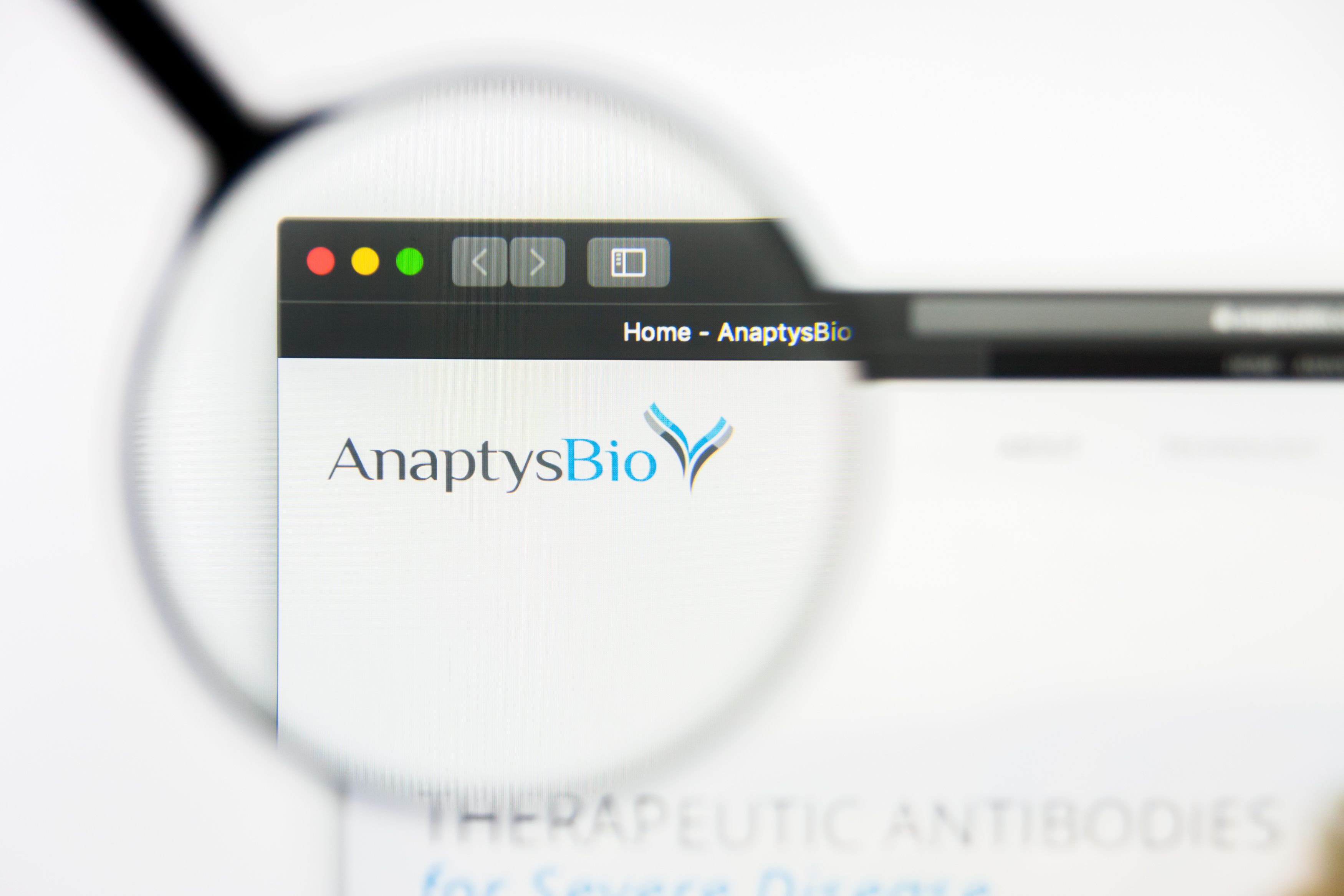- Case-Based Roundtable
- General Dermatology
- Eczema
- Chronic Hand Eczema
- Alopecia
- Aesthetics
- Vitiligo
- COVID-19
- Actinic Keratosis
- Precision Medicine and Biologics
- Rare Disease
- Wound Care
- Rosacea
- Psoriasis
- Psoriatic Arthritis
- Atopic Dermatitis
- Melasma
- NP and PA
- Skin Cancer
- Hidradenitis Suppurativa
- Drug Watch
- Pigmentary Disorders
- Acne
- Pediatric Dermatology
- Practice Management
- Prurigo Nodularis
- Buy-and-Bill
News
Article
AnaptysBio Releases Positive Top-Line Phase 3 Results of Imsidolimab for GPP Flares
Author(s):
A BLA is expected to be submitted by Q3 of 2024.
AnaptysBio recently announced positive topline results from its global phase 3 clinical trial, GEMINI-1, evaluating the safety and efficacy of imsidolimab (IL-36R mAb) for the treatment of generalized pustular psoriasis (GPP) flares. Imsidolimab met its primary end point of achieving rapid clearance of pustulation, erythema, and scaling through week 4 after a single dose of 750mg IV imsidolimab.1
Full topline results include:
- 53.3% of patients who received a single dose of 750mg IV imsidolimab achieved Generalized Pustular Psoriasis Physician Global Assessment (GPPPGA) 0/1 (clear or almost clear) at week 4 compared to 13.3% of patients who received placebo
- 66.7% (10/15) of patients who received placebo and who left GEMINI-1 early were moved to GEMINI-2 and were eligible to receive rescue therapy with a single dose of 750mg IVimsidolimab
- All adverse events (AEs) reported in imsidolimab-treated patients were mild or moderate and equal across imsidolimab-treated vs. placebo patients
- No serious or severe AEswere reported in imsidolimab-treated patients
- There were no reported cases of Drug Reaction with Eosinophilia and Systemic Symptoms or Guillain-Barre syndrome
- In imsidolimab-treated patients, there was low incidence and no elevation of infections compared to placebo
- No infusion reactions were reported
- One of 30 (3.3%) imsidolimab-treated patients had detectable anti-drug antibodies, which were non-neutralizing
AnaptysBio plans to present additional data from GEMINI-1 and top-line GEMINI-2 results at a medical meeting in the second half of 2024. AnaptysBio also plans to file a biologics license application with the US Food and Drug Administration by Q3 2024.
“The success of the GEMINI-1 trial highlights Anaptys’ commitment to patients and our ability to internally discover and develop differentiated antibodies,” said Daniel Faga, the president and chief executive officer of AnaptysBio, in the news release. “Moving forward, we intend to out-license imsidolimab with this compelling and competitive dataset to bring this therapy to patients living with this highly morbid condition and reallocate the potential proceeds of a transaction to further invest in the broad development of our best-in-class immune cell modulators, including our checkpoint agonists, in autoimmune and inflammatory diseases.”
According to AnaptysBio, “Imsidolimab is an IgG4 antibody that inhibits the function of the interleukin-36 receptor (IL-36R), a signaling pathway within the immune system shown to be involved in the pathogenesis of inflammatory diseases, including GPP. The registration-enabling GEMINI-1 trial in GPP, which recruited 45 patients, is the first randomized, double-blind, placebo-controlled trial to use the composite endpoint of Generalized Pustular Psoriasis Physician Global Assessment (GPPPGA) at week 4 as its primary assessment.”
In GEMINI-1, a total of 45 patients, 15 patients per arm, were enrolled across the US, EU, Middle East, North Africa, and Asia. Patients were randomized 1:1:1 to receive a single infusion of 750mg IV imsidolimab, 300mg IV imsidolimab, or placebo at day 0. Patients who received placebo who were worsening or had not improved after day 8 were eligible for rescue therapy and crossover into the GEMINI-2 phase 3 trial where they received a single infusion of 750mg IV imsidolimab.
Patients who were rescued or completed the GEMINI-1 trial are being enrolled in the phase 3 GEMINI-2 trial, where patients are receiving monthly doses of 200mg subcutaneous imsidolimab or placebo, depending on whether they are responders, partial responders, or non-responders to treatment under GEMINI-1.
The goal of GEMINI-2 is to assess the efficacy and safety of imsidolimab for the prevention and/or reduction in severity of recurrent GPP flares when dosed chronically as a monthly subcutaneous dosing over a three-year period.
“GPP is an unpredictable and potentially life-threatening skin disease with systemic symptoms,” said Hervé Bachelez, MD, PhD, a professor of dermatology at the Hôpital Saint-Louis in Paris, in the news release. “Achieving positive top-line results utilizing the GPPPGA composite endpoint in this well conducted, randomized controlled, global trial, along with a compelling safety profile, represents the potential for a single dose of imsidolimab to predictably provide relief for patients living with this burdensome disease.”
Reference
- Anaptys announces positive top-line phase 3 clinical trial results of imsidolimab (IL-36R) in generalized pustular psoriasis (GPP). AnaptysBio. News release. October 9, 2023. Accessed October 9, 2023. https://ir.anaptysbio.com/news-releases/news-release-details/anaptys-announces-positive-top-line-phase-3-clinical-trial
Newsletter
Like what you’re reading? Subscribe to Dermatology Times for weekly updates on therapies, innovations, and real-world practice tips.







